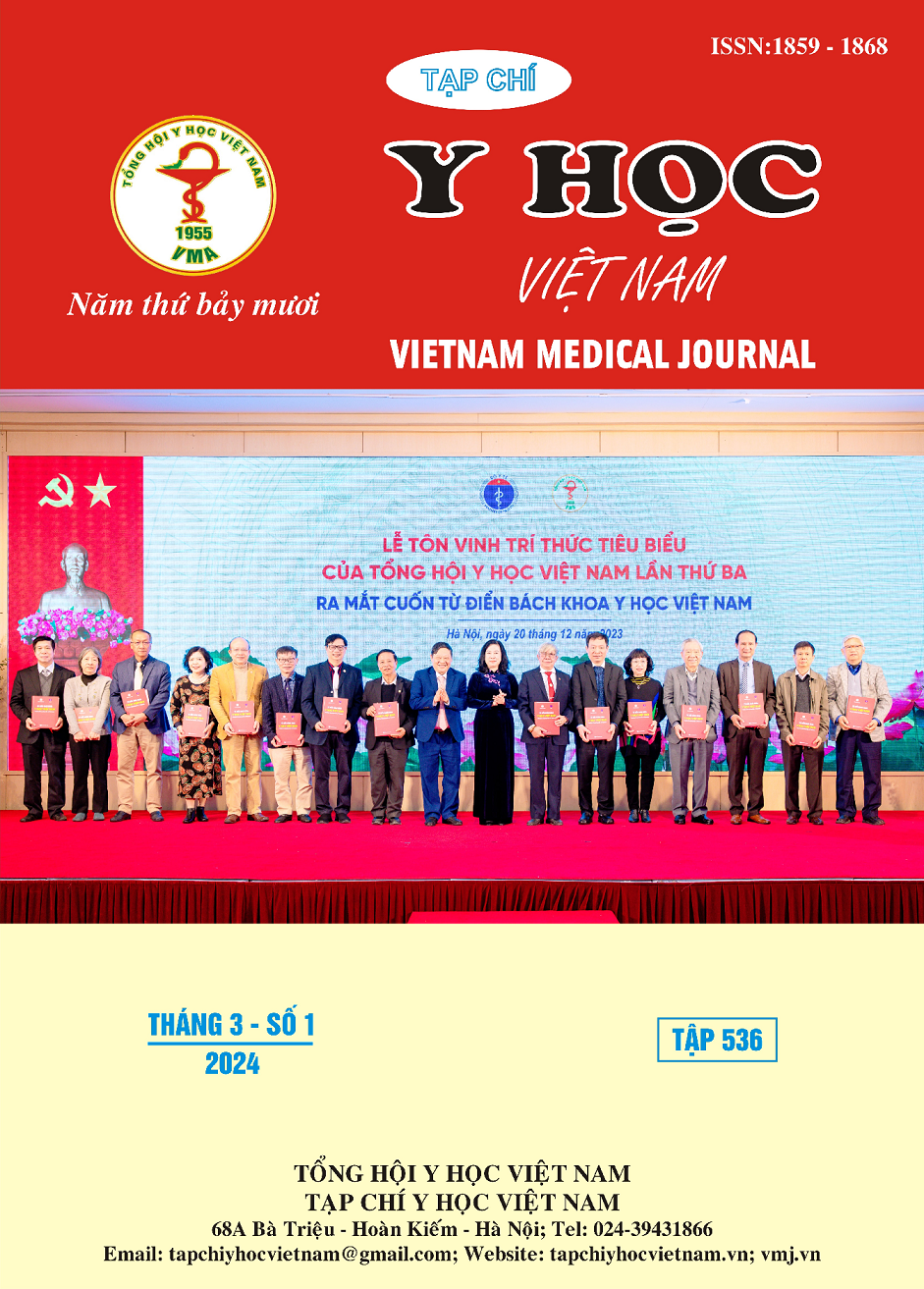EFFICACY OF THE QING SHANG FANG FENG DECOCTION IN SUPPORTIVE TREATMENT OF ACNE VULGARIS
Main Article Content
Abstract
Objectives: To explore clinical efficacy of the Qing shang fang feng decoction on acne vulgaris. Methods: 60 cases were divided into the study group and control group equally. The control group received oral Erythromycin and Adapalene 0.1% for 60 days: the study group received the Qing shang fang feng decoction and Adapalene 0.1% for 60 days. Results: In the study group, the total efficiency was 86.67%, beter than the control group (70%) with statistically significant diference. The number of inflammatory lesions in the study group also decreased better than the control group at the end of treatment. The CADI index in two groups decreased over the time, howerver, there was no statistically significant difference between two groups. Conclusion: The Qing shang fang feng decoction could effectively promote regression of acne lesions, and may be used as an alternative medicine for patients with moderate acne vulgaris who do not adhere to antibiotic treatment.
Article Details
References
2. Nast A, Dréno B, Bettoli V, et al. European evidence-based (S3) guidelines for the treatment of acne. J Eur Acad Dermatol Venereol JEADV. 2012;26 Suppl 1:1-29. doi:10.1111/j.1468-3083.2011. 04374. x
3. Chen HY, Lin YH, Chen YC. Identifying Chinese herbal medicine network for treating acne: Implications from a nationwide database. J Ethnopharmacol. 2016; 179:1-8. doi: 10.1016/ j.jep.2015.12.032
4. 龚挺贤. 面病. 万病回春. 中国医药科技出版社; 2021:151.
5. Tan JK. Current measures for the evaluation of acne severity. Expert Rev Dermatol. 2008;3(5): 595-603. doi:10.1586/ 17469872.3.5.595
6. 郑筱舆. 中药新药治疗寻常痤疮的临床研究指导原则. 中药西药的临床研究指导原则. 中国医药科技出版社; 2002:292-295.
7. Lee JW, Kang YJ, Choi HK, Yoon YG. Fractionated Coptis chinensis Extract and Its Bioactive Component Suppress Propionibacterium acnes -Stimulated Inflammation in Human Keratinocytes. 2018;28(6):839-848. doi:10.4014/ jmb.1712.12051
8. Tsai PJ, Huang WC, Hsieh MC, Sung PJ, Kuo YH, Wu WH. Flavones Isolated from Scutellariae radix Suppress Propionibacterium Acnes-Induced Cytokine Production In Vitro and In Vivo. Mol Basel Switz. 2015;21(1): E15. doi:10.3390/ molecules21010015


